Know About Java Full Stack Developer Course Syllabus
4.9 out of 5 based on 8747 votesLast updated on 16th Apr 2024 16.9K Views
- Bookmark

Our Java Full Stack Developer Syllabus covers a comprehensive range of topics required to become proficient in Java Full Stack Development.
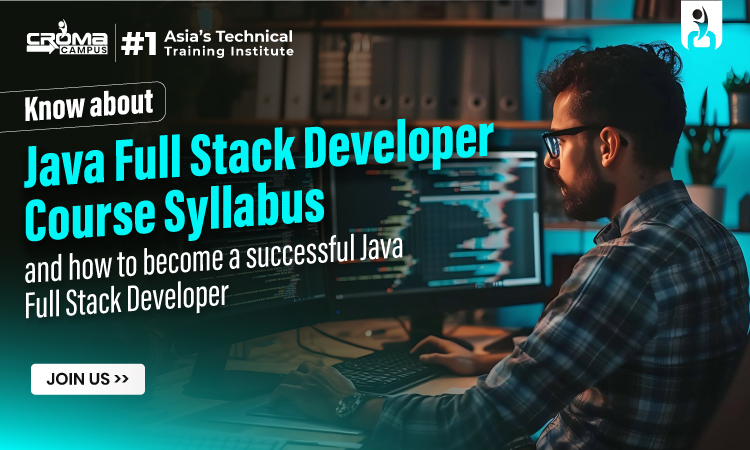
Full Stack Development is a dynamic and lucrative field within the tech industry, offering both challenges and rewards. With technology advancing rapidly, the demand for Full Stack Developers has surged. According to the U.S. Bureau of Labor Statistics, the job outlook for Full Stack Developers is projected to grow significantly faster than average in the coming years.
So, what exactly does a Full Stack Developer do? In essence, a Full Stack Developer is tasked with creating both the front-end and back-end components of websites or applications. This encompasses everything from designing and coding the user interface to constructing and managing the server-side logic. As a Full Stack Developer, you must possess a robust grasp of multiple programming languages and frameworks, as well as proficiency with databases, APIs, and other indispensable technologies.
In this blog, we will majorly discuss the skills needed to become a Java Full Stack Developer and a detailed Java Full Stack Developer Course syllabus by Croma Campus. However, here we have given a general idea of the content covered, you are free to customize course content based on your unique requirements.
Java Full Stack Developer Course Syllabus
Here is a detailed syllabus for a Java Full Stack Developer course:
Chapter 1: Introduction to Full-Stack Development
- Overview of Full Stack Development
- Importance and role of Full Stack Developers
- Understanding the technology stack
- Tools and technologies used in Full Stack Development
Chapter 2: Frontend Development Basics
- Introduction to HTML5
- Introduction to CSS3
- Introduction to JavaScript
- DOM Manipulation
- Introduction to Bootstrap Framework
- Introduction to Responsive Web Design
Chapter 3: Advanced Frontend Development
- Introduction to JavaScript frameworks (React.js, Angular, Vue.js)
- Single Page Application (SPA) development
- State management in React.js (Redux)
- Component-based architecture
- Introduction to TypeScript
- Introduction to RESTful APIs and AJAX
Chapter 4: Backend Development with Java
- Introduction to Java programming language
- Introduction to Java Servlets
- Introduction to JavaServer Pages (JSP)
- Introduction to Spring Framework
- Spring Boot fundamentals
- Building RESTful APIs with Spring Boot
- Introduction to Hibernate ORM
Chapter 5: Database Management
- Introduction to Relational Databases (MySQL, PostgreSQL)
- Introduction to NoSQL Databases (MongoDB)
- SQL basics (DDL, DML, DQL)
- Data modeling and database design
- Connecting Java applications to databases
Chapter 6: Full Stack Development Tools
- Integrated Development Environments (IDEs) - Eclipse, IntelliJ IDEA
- Version Control Systems (Git, GitHub)
- Build Automation Tools (Maven, Gradle)
- Containerization (Docker)
- Continuous Integration/Continuous Deployment (CI/CD) tools (Jenkins)
- Introduction to Agile methodologies
Chapter 7: Web Application Security
- Cross-Site Scripting (XSS) attacks
- Cross-Site Request Forgery (CSRF) attacks
- SQL Injection attacks
- Session Management and Authentication
- Best practices for securing web applications
Chapter 8: Deployment and DevOps
- Deploying applications to cloud platforms (AWS, Azure, Google Cloud)
- Configuring web servers (Apache Tomcat, Nginx)
- Container orchestration (Kubernetes)
- Infrastructure as Code (IaC) using tools like Terraform
- Monitoring and logging strategies
Chapter 9: Building Full-Stack Projects
- Developing a complete Full Stack application from scratch
- Project management and team collaboration
- Agile development methodologies
- Best practices for code organization and documentation
- Debugging and troubleshooting techniques
Chapter 10: Capstone Project
- Final project where students apply all the concepts learned throughout the course
- Individual or group-based project
- Project presentation and demonstration
This Java Full Stack Developer Syllabus covers a comprehensive range of topics required to become proficient in Java Full Stack Development. Each chapter includes both theoretical concepts and practical hands-on exercises to ensure students gain a deep understanding of the subject matter.
You May Also Read This Post:
Java Full Stack Developer Interview Questions
Benefits Of Learning Java Full Stack
Mern Stack Interview Questions
Web Development Course Syllabus
Skills Required for Java Full Stack Developer:
To become a Java Full Stack Developer, you'll need a diverse set of skills encompassing both front-end and back-end development, along with proficiency in various technologies. Here are the key skills required:
- Java Programming: Mastery in Java is essential as it serves as the backbone for server-side development in Java Full Stack applications.
- Spring Framework: Familiarity with Spring Framework, including Spring Boot, Spring MVC, and Spring Data JPA, is crucial for building robust back-end services and APIs.
- HTML, CSS, JavaScript: Proficiency in front-end technologies like HTML for markup, CSS for styling, and JavaScript for interactive web elements is necessary to create engaging user interfaces.
- React or Angular: Understanding of modern front-end frameworks like React.js or Angular.js is beneficial for building dynamic and responsive user interfaces in Java Full Stack applications.
- RESTful APIs: Knowledge of designing and implementing RESTful APIs is vital for communication between the front-end and back-end components of the application.
- Database Management: Experience with database management systems like MySQL, PostgreSQL, or MongoDB is essential for storing and retrieving data in Java Full Stack applications.
- Version Control Systems: Proficiency in using version control systems like Git for managing code repositories and collaborating with other developers.
- Unit Testing: Familiarity with unit testing frameworks like JUnit for testing Java code and Jest or Enzyme for testing front-end components ensures the reliability and quality of the application.
- DevOps Tools: Understanding of DevOps principles and experience with tools like Docker, Jenkins, and Kubernetes for continuous integration, deployment, and monitoring of Java Full Stack applications.
- Agile Methodologies: Knowledge of Agile development practices like Scrum or Kanban for iterative and collaborative software development processes.
- Problem-solving Skills: Ability to troubleshoot issues, debug code, and find efficient solutions to complex problems encountered during development.
- Soft Skills: Effective communication, teamwork, and adaptability are essential for collaborating with cross-functional teams and delivering high-quality Java Full Stack applications.
By honing these skills, you can position yourself as a competent and sought-after Full Stack Developer Course Online in the competitive tech industry.
Final Words:
Croma Campus offers specialized training for aspiring Java Full Stack Developers, providing expert guidance from industry professionals. With a structured curriculum covering Java programming, Spring Framework, and front-end technologies like HTML, CSS, and JavaScript, students gain hands-on experience through real-world projects.
Upon completion, they receive certifications and benefit from placement assistance services, including resume building and interview preparation. Flexible learning options cater to diverse schedules, ensuring convenience for all learners.
With continuous support and access to alumni networks, Croma Campus equips individuals with the skills and knowledge needed to excel in the competitive field of Java Full Stack development.
Subscribe For Free Demo
Free Demo for Corporate & Online Trainings.
Your email address will not be published. Required fields are marked *
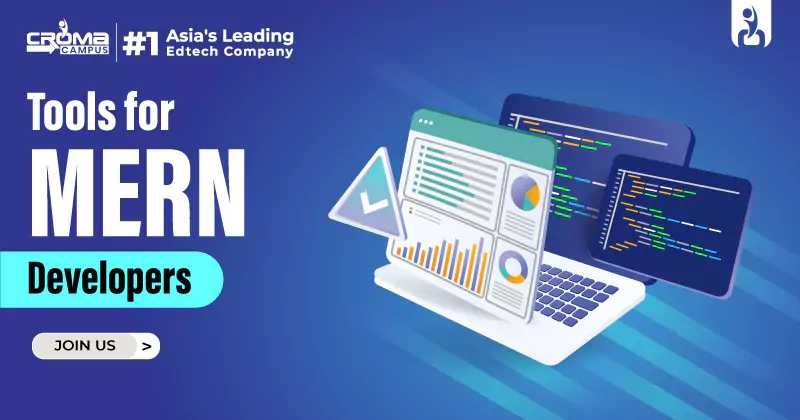
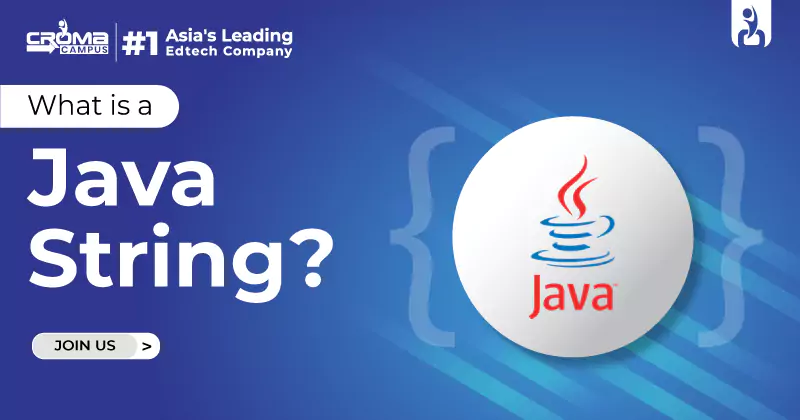
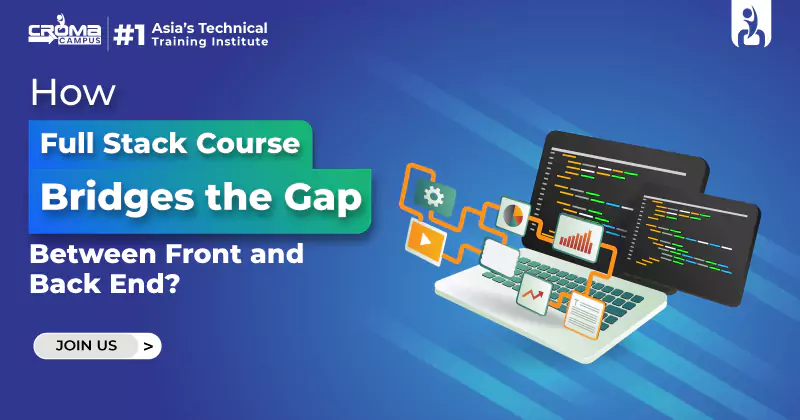
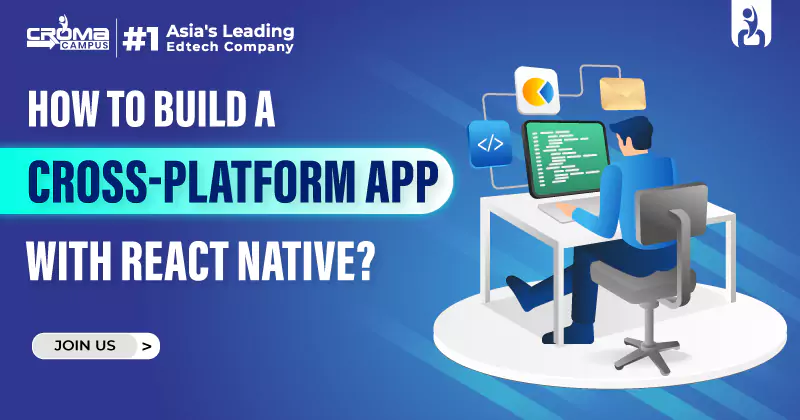
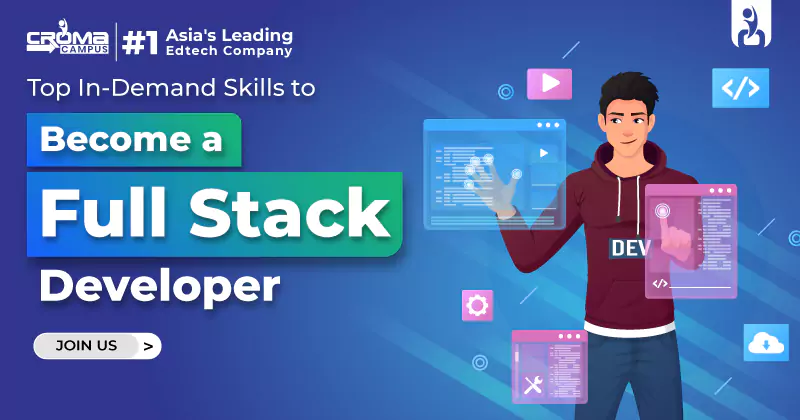
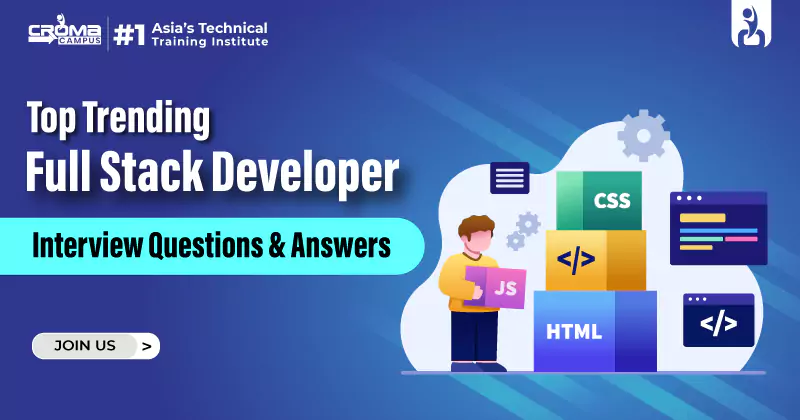
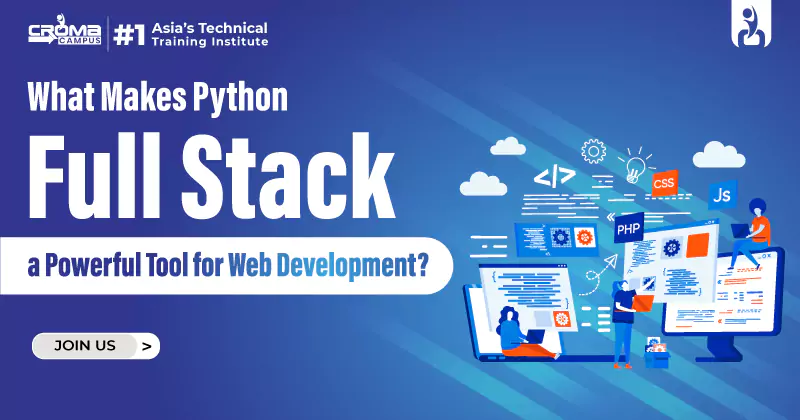
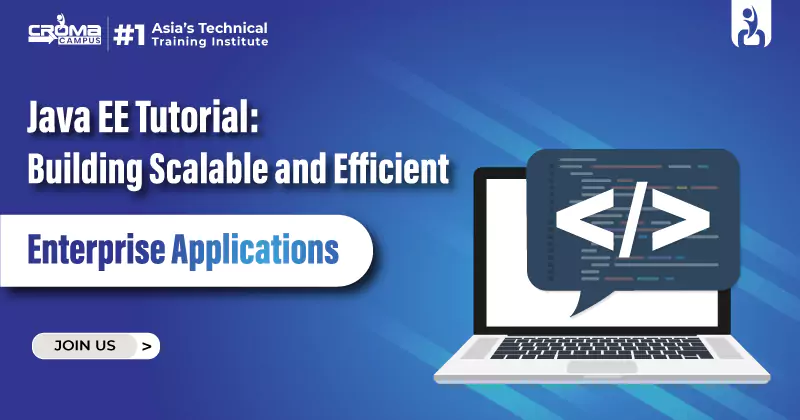
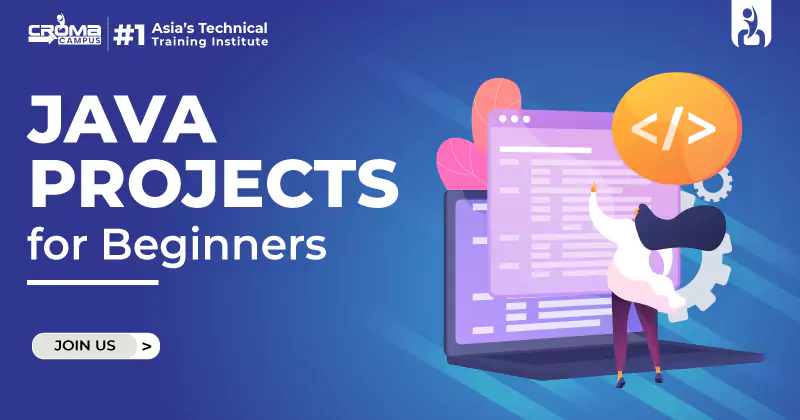
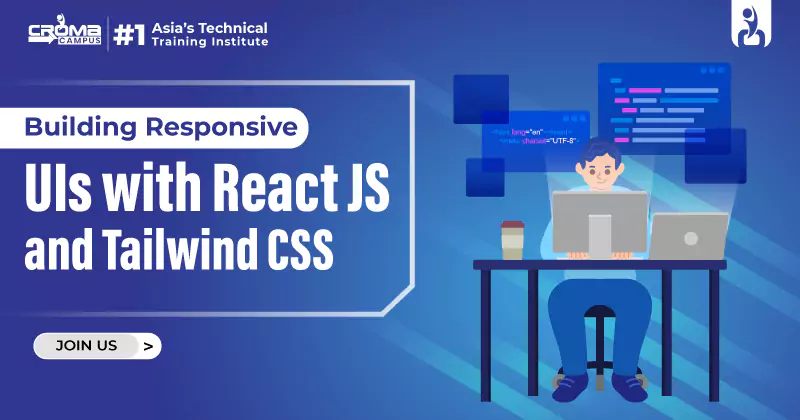
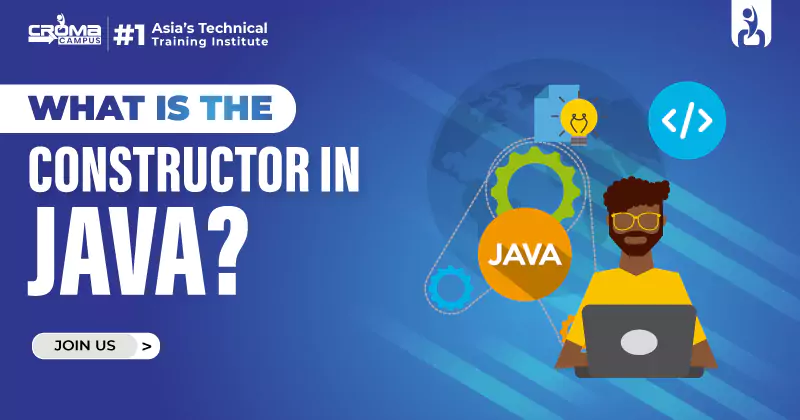
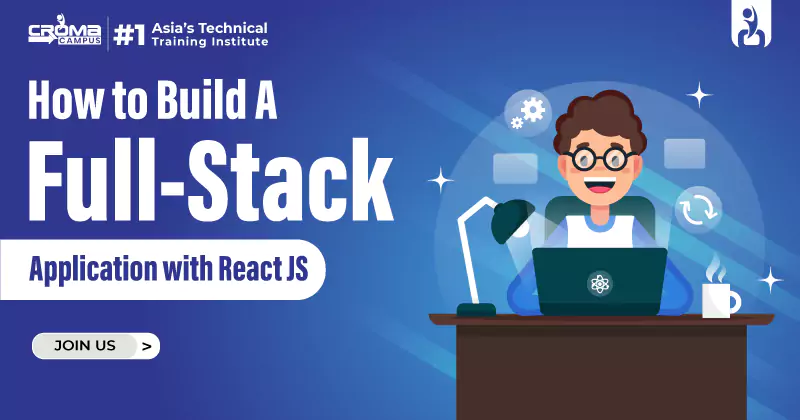










 Master in Cloud Computing Training
Master in Cloud Computing Training